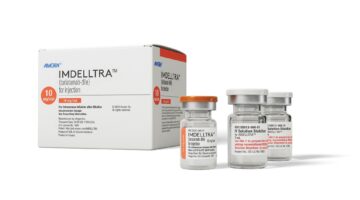The HIMSS conference halls in Orlando were buzzing with the words population health analytics, something that makes OptumInsight CEO Bill Miller smile. It’s not just because the UnitedHealth Group (NYSE: UNH) company was debuting its own population health analytics tool at the show — Optum One. It’s because he and others in the industry have seen the need for these tools for years, but for many electronic health record and electronic medical record vendors that have focused on core clinicals they are only just beginning to produce these tools.
OptumOne is the convergence of the company’s analytic capabilities with claims data and Humedica’s clinical data to spot care gaps and to help hospitals do a better job of coordinating care.
“We have been doing this for 25 years, always with the idea that data would matter,” said Miller. He told MedCity News that the divisions of Optum such as its pharmacy, care management and health IT services businesses have been working more closely together in the past couple of years as it’s providing more integrated solutions for hospitals to make the transition from fee-for-service to value-based outcomes.

BioLabs Pegasus Park Cultivates Life Science Ecosystem
Gabby Everett, the site director for BioLabs Pegasus Park, offered a tour of the space and shared some examples of why early-stage life science companies should choose North Texas.
For years clinical data has been elusive. It couldn’t be used for meaningful analytics because each electronic medical record provider would have its own nomenclature for drugs, for example. On the other hand, claims data may be late, but it’s standardized. Miller said one reason Optum bought Humedica last year was that “it was the first company we had seen that flattened out clinical data and matched it with administrative data.” That led to the development of the Optum Labs program with the Mayo Clinic in which a resource of claims and clinical data is tapped by collaboration partners it sought for the past year (such as Pfizer and Tufts Medical Center) to develop tools that could be commercialized.
Miller said he expects this year will produce some interesting commercial applications for that data, although he avoids being too specific. But one example he gives would be around transparency in hospital practices, identifying trends that would be used to compare the costs of one hospital caring for a particular patient with another system in the context of the clinical stream to see what each one is doing differently. These are the kind of insights that data silos have historically prevented, and some of the insights are not so flattering.
“Every health system is in the business of protecting their doctors,” said Miller. “If we had been doing this four years ago, no one would have had the stomach for this level of [insight].”
Although some tools would be made available to everyone for a price, some health systems would likely retain organizations, others those that might give them a competitive advantage.

With the Rise of AI, What IP Disputes in Healthcare Are Likely to Emerge?
Munck Wilson Mandala Partner Greg Howison shared his perspective on some of the legal ramifications around AI, IP, connected devices and the data they generate, in response to emailed questions.
He added: “We’re not at the point where we’re building new technologies, but I think we’re at the point of discovering things in the combined data that would tell us how dramatically health systems could improve the way they deliver care and intervene with patients.”












